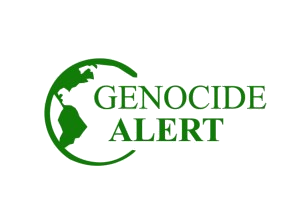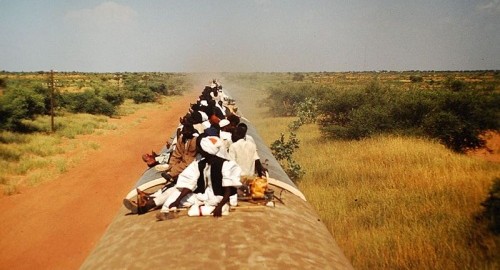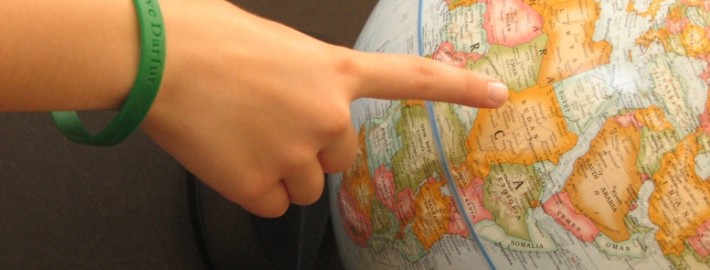A referendum on January 9 will see the people of South Sudan voting overwhelmingly to secede from the rest of the country. There is a grave danger that this decision could lead to violence if the regime led by Sudanese President Omar al-Bashir, wanted by the International Criminal Court for war crimes, refuses to accept the result. The border region of Abyei in particular could be a flashpoint for the renewal of a war with potentially hundreds of thousands of civilian victims. Against this backgroup, Germany should take urgent steps in cooperation with the European Union, United States and United Nations to prevent mass atrocities against the civilian population.
This Genocide Alert Policy Brief describes Germany’s options for ameliorating the situation in Sudan. In partnership with the EU, US and UN, Berlin can use targeted humanitarian measures, diplomatic pressure and economic incentives to help prevent a potential renewal of the North-South war in Sudan from escalating to a humanitarian catastrophe. Germany and its partners should also consider military options for the protection of civilians to be prepared for the case that mass atrocities resume in spite of all efforts to prevent them.
In summary, Germany should swiftly adopt the following measures:
In the humanitarian realm:
- ensure that a plea by UN Secretary-General Ban Ki-Moon for $63 million to fund humanitarian preparations is swiftly met. If necessary, Germany should provide the entire sum itself and only later seek reimbursement from its allies.
- offer financial and logistical assistance to NGOs operating in southern Sudan as they pre-position critical supplies and equipment.
In the diplomatic realm:
- express concern about the situation in Sudan and warn all sides to the conflict from resorting to violence, both publicly and through diplomatic channels.
- prepare, in consultation with EU partners, concrete diplomatic consequences for human rights violations on the part of Khartoum, and communicate these to the regime.
In the economic realm:
- make clear to Khartoum that provocations following the referendum will rule out progress on international debt relief for the regime.
- urge EU partners to prepare sanctions that would target responsible politicians and their families and associates if necessary.
In the realm of physical security:
- as a member of the Security Council, advocate urgently for the UNMIS peackeeping force in South Sudan to receive unqualified support to maximize its mandate for the protection of civilians.
- offer the UN short-term assistance in areas such as communications, intelligence, security and mobility for UNMIS.
- in conjunction with its partners, initiate a review of last-resort military options that could be considered if mass atrocities against the civilian population ensure.
Table of Contents
1. Crisis scenarios
2. Support humanitarian preparations
3. Demand protection of civilians publicly and through diplomatic channels
4. Leverage economic influence on behalf of civilian protection
5. Helping UN peacekeepers protect civilians
6. Creating safe havens in case of mass atrocities against civilians
1. Crisis scenarios
The mostly likely instigator of violence in the wake of the North-South referendum is the National Congress Party of Omar al-Bashir. The NCP could respond to the referendum by launching all-out attacks against the southern military, the Sudan People’s Liberation Army. Alternately, the NCP could arm tribal militias in flashpoint areas such as Abyei and provide them air support to carry out local ethnic battles. This was a commonly employed strategy during the genocide in Darfur and the long North-South civil war that ended in 2005. The goals of the NCP’s military action could range from preventing the secession of the South to gaining leverage in negotiations over the nature of the secession or vis a vis the international community. A frequent NCP strategy is to commit humanitarian abuses and then use the cessation of such abuses as a “bargaining chip.”
However, it is also possible that the Sudan People’s Liberation Movement, the party that controls the South, will respond with violence if the North refuses to carry out or recognize the referendum, or frustrates negotiations on the seperation. Another danger is that military units on either side may instigate violence on their own as a result of weak command-and-control. An even greater concern is that ethnic tensions could boil over at the local level without high-level instigation. Such ethnic battles in themselves have the potential to lead to a large number of civilian deaths. More dangerously, they could escalate into broader conflicts as rival armies move to support local ethnic militias or as other flashpoints erupt in response.
2. Support humanitarian preparations
Aid agencies active in South Sudan are preparing for a potential humanitarian emergency in the wake of the referendum. Any violence would exacerbate an already fragile humanitarian situation – hunger is widespread throughout South Sudan and 200,000 people were displaced by localized fighting in the last year alone. Khartoum routinely frustrates the delivery of humanitarian aid as a tool of war and negotiation. Germany and Europe must be prepared to respond to interference with humanitarian operations by using the range of policy tools described below.
Moreover, the German Foreign Ministry should contact NGO’s operating in Sudan to inquire into their logistical and financial needs as they pre-position critical supplies and equipment. Germany should offer Bundeswehr logistical assistance if necessary. Germany should also ensure that a plea by Ban Ki-moon for $63 million to fund humanitarians preparations is swiftly met. If necessary, Germany should provide the entire sum itself and only later seek reimbursement from its allies.
Germany should:
- ensure that a plea by UN Secretary-General Ban Ki-Moon for $63 million to fund humanitarian preparations is swiftly met. If necessary, Germany should provide the entire sum itself and only later seek reimbursement from its allies.
- offer financial and logistical assistance to NGOs operating in southern Sudan as they pre-position critical supplies and equipment.
3. Demand protection of civilians publicly and through diplomatic channels
Diplomatic pressure and public diplomacy are effective instruments in policy toward Khartoum insomuch as the regime is hungry for international legitimacy in the wake of the ICC’s indictment of President al-Bashir for genocide and crimes against humanity. Also in the diplomatic realm, Germany should not shy away from a public dispute with China about the latter’s Sudan policy. If China moves to block effective action by the Security Council or fails to take bilateral steps to rein in Khartoum, Germany should have the courage to make a public issue of the matter, and not be cowed by Chinese economic power.
Germany should:
- express concern about the situation in Sudan and warn all sides against launching attacks against civilians through public statements by both the Government and opposition.
- urgently communicate the same message to the Sudanese ambassador in Berlin and via all other diplomatic channels to Khartoum.
- in consultation with EU partners, prepare concrete diplomatic consequences for instransigence on the part of Khartoum and communicate these to the regime. The steps could range from calling in the Sudanese ambassador for a rebuke to withdrawing the German ambassador to Khartoum.
- use Berlin’s strong relationship with China and with parts of the Arab world to urge these countries to adopt productive policies as regards Sudan.
4. Leverage economic influence on behalf of civilian protection
As Sudan’s second-largest trading partner (by imports, after China), the EU in theory has significant economic leverage over Khartoum. But Europe has been all too reluctant to flex those mucles. Time and again, European leaders have refused to seriously consider imposing meaningful sanctions even as they reiterated – more than 50 times – their concern over the mass violence against civilians in Darfur. Now, Germany and the E.U. have an opportunity to finally put their economic leverage over Khartoum to work by making credible threats to impose targeted sanctions against key figures and to withhold debt relief from the regime.
A credible threat of targeted sanctions against key regime figures is achievable in the short term, as the recent imposition of such measures against the holdout for the president of the Ivory Coast, Laurent Gbagbo, demonstrates. These can also be effective tools of pressure.
The debt issue also represents a significant opportunity. Sudan’s external debt totals about $35 billion. The country has been in arrears to international financial institutions (IFIs) and to “Paris Club” creditor nations for years. Since 2000, Khartoum has made the problem worse by piling on debt from new creditors, including China and Arab countries. These creditors were willing to lend to Khartoum because of Sudan’s oil boom. But the global economic recession and the resulting drop in oil prices have cut off the spigot and left Khartoum facing a cash crunch. For over a year, Sudanese officials have been seeking debt relief on both a bilateral and a multilateral basis. The Council of the European Union recognizes this opportunity, having recently remarked that “fulfilment of commitments under the CPA [Comprehensive Peace Agreement of 2005] and on Darfur would positively affect this [debt relief] process.”
- make clear to Khartoum that provocations following the referendum will rule out progress on international debt relief for the regime. Germany must take the lead on this issue, urging a joint effort among EU members but acting bilaterally if necessary. Germany could indicate that it will use its position in the IFIs and the Paris Club to block any relief for Khartoum if circumstances warrant.
- urge EU partners to prepare sanctions that would target responsible politicians and their families and associates. These measures should target members of the regime in Khartoum and if necessary also leading politicians in South Sudan, and should include steps such as freezing assets and imposing visa bans. The EU has acted similarly in the case of Ivory Coast’s Gbagbo and should be willing to apply this policy to Sudan.
5. Helping UN peacekeepers protect civilians
UNMIS has a Chapter 7 mandate but was primarily deployed and understood by members of the mission as a Chapter 6 force, charged with monitoring the implementation of the Comprehensive Peace Agreement and protecting UN personnel and installations. UN officials have repeatedly acknowledged that UNMIS lacks the military capacity to engage in significant civilian protection, notwithstanding the fact that the Security Council has steadily ratcheted up civilian-protection expectations for the beleaguered force. As analysts at Refugees International concluded earlier this year: “It is too late to address staff and resource issues.” But UNMIS is not entirely powerless. In fact, force leaders have done much since 2008 to prioritize civilian protection. Among other things, UNMIS has developed an overarching Protection of Civilians Strategy that is viewed as a model for other UN missions. The mission has recognized the need to make the vague protection language of UNSC resolutions concrete, to flexibly adjust troop deployments as needed, and to engage in preventive dispute resolution. In the days before the referendum, Germany should:
- use its position as a member of the UN Security Council to ensure that these positive changes receive the necessary support and reinforcement from the political and military leadership in New York and among the troop-contributing countries. Ideally, this view should be reinforced by a pre-referendum statement from the Security Council.
- inquire whether it can make any immediate contributions in the way of equipment or maintenance that could faciliate UNMIS communications, intelligence, security or mobility, in particular aerial mobility. Germany should also press surrounding countries and NATO allies to share any intelligence they gather that might suggest the organization of violence.
- warn all parties to the conflict publicly that violations of human rights and international humanitarian law will be condemned. UNMIS will play a vital role as monitor in this regard.
6. Creating safe havens in case of mass atrocities against civilians
The United Nations determined unanimously in 2005 that every state has the responsibility to protect its population from mass atrocities. Should a state prove unwilling or unable to meet this resonsibility, the international community has the obligation to stop such violence. In the context of the referendum a situation could arise in which the use of a limited military intervention is necessary as a last resort to protect endangered civilians or put a stop to serious atrocities. In such a case, a rapid reaction will be important to prevent the deaths of hundreds of thousands of innocents. Germany should, in partnership with its partners in the EU, African Union and NATO, develop last-resort contingency plans for this scenario. Concretely, this could require the establishment of militarily protected safe zones for refugees. The EU has the requisite capacity in the form of its Battle Groups.
Germany should:
- in conjunction with its partners, initiate a review of last-resort military options that could be considered if mass atrocities against the civilian population ensure.
- as part of this planning, consider the deployment of a rapid-reaction ground force such as an EU Battle Group as a way to meet the “responsibility to protect” by creating militarily secure “safe zones.”
by David Dagan


